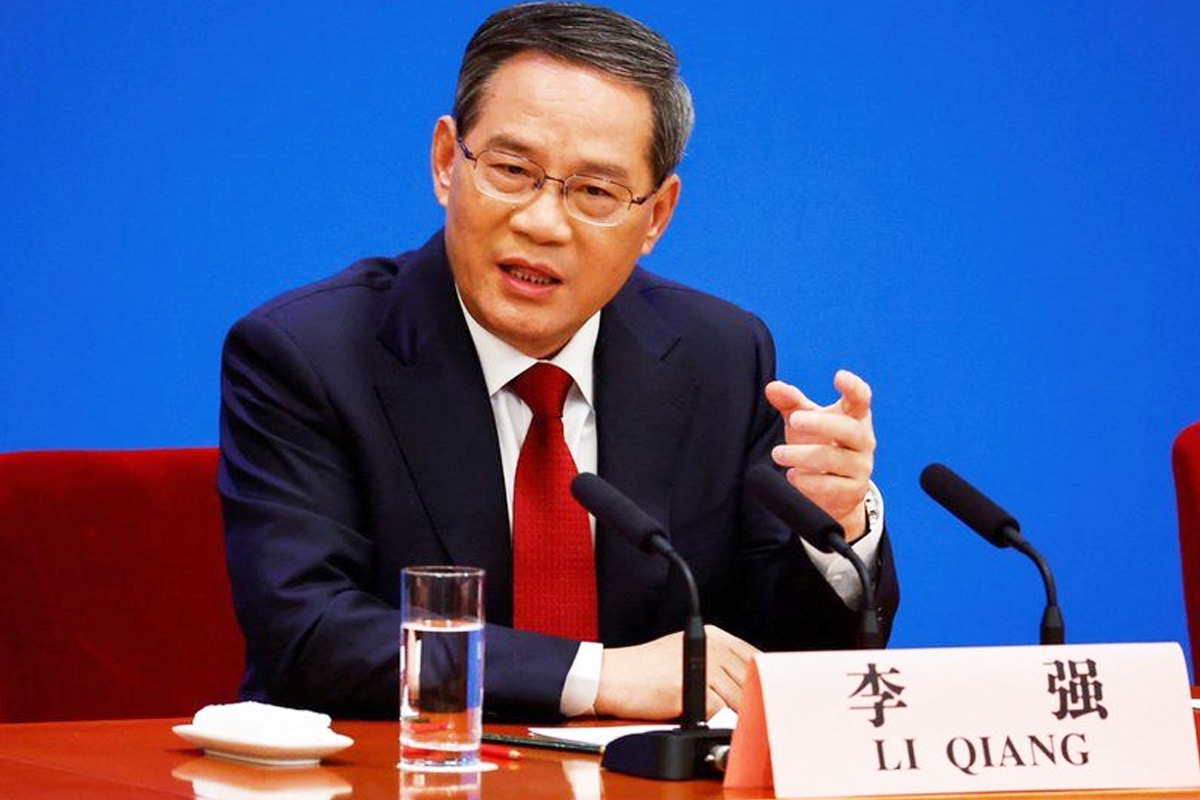
Analysts believe that Xi Jinping is installing loyalists in key positions as he further consolidates power after being unanimously elected president, for an unprecedented third term last week.

The man nominated as China’s next prime minister by President Xi Jinping has been formally elected by parliament.
Li Qiang, 63, the former Communist Party chief of Shanghai, took up the country’s second-highest post on Saturday. The close ally of President Xi Jinping now has the daunting task of reviving an economy battered by three years of Covid-19 curbs.
Qiang has served as the second-ranking member of the 24-member Chinese Communist Party (CCP) Politburo Standing Committee since October 2022.
In the past, Qiang served as party secretary of Shanghai City from 2017 to 2022, party secretary of Jiangsu Province from 2016 to 2017, and governor of Zhejiang Province from 2012 to 2016.
Having served together with the current CCP general secretary and Chinese President, Xi Jinping, in Zhejiang, Li is regarded as a pro-business politician and a close ally of Xi Jinping. China’s economy grew by just 3 percent in 2022. Beijing has set a modest 2023 growth target of around 5 percent, its lowest goal in nearly three decades.
Qiang is the first politician since 1976 to rise directly to premiership from local government without any prior working experience in the central government. The lack of Beijing experience also makes him heavily dependent on support from Xi Jinping to run the State Council.
In 2004, Li became the secretary-general of Zhejiang’s Provincial Party Committee and earned a seat on its Standing Committee the next year, serving under Xi Jinping, the then-Zhejiang party secretary. He was Xi’s de-facto chief of staff from 2004 to 2007, a fact which is believed to be the reason for his political rise.
Qiang is regarded as a politician for his pro-business outlook. His three decades of work in the Yangtze Delta, which is believed to be the country’s economic powerhouse, earned him a business-friendly reputation. During Qiang’s reign, Tesla built its first giga-factory outside the United States in the Chinese city of Shanghai. Tesla has sole ownership of the factory, becoming the first foreign automaker in China to wholly own its plant.
Analysts believe that Xi Jinping is installing loyalists in key positions as he further consolidates power after being unanimously elected president, for an unprecedented third term last week.
Qiang’s close relationship with Xi Jinping goes back to the early 2000s. This has led many political observers to speculate that Qiang will function more or less as a yes-man to Xi.
The new Chinese premier faces challenges that defy easy solutions. Experts believe that the government must grapple with problems spanning excessive local government debt, lack of productivity growth, and a fast-aging population, all while managing tensions with major trading partners in the West—whom Beijing has accused of trying to choke China in strategic sectors.
The recent Coronavirus pandemic has led to a fall in consumer confidence which will be hard to rebuild.
Qiang is tasked with reviving the world’s second-largest economy after three years of COVID curbs. But he faces challenges including weak confidence among consumers and private industry, sluggish demand for exports, and worsening relations with the West, particularly the United States.
China’s private sector has been rattled in recent years by a sweeping regulatory clampdown targeting some of its most vibrant industries, including the internet and private education.
Reports say that Chinese officials are preparing Qiang to attend the Bo’ao Forum, a Chinese government-backed political and business conference to be held later this month where the new premier could boost his international profile by meeting foreign leaders, including from Malaysia, Singapore, and Nepal.
Qiang’s handling of last year’s COVID outbreak, keeping the city of over 26 million under lockdown for about a month drew sharp criticism at home and abroad as it resulted in heavy hardships for the population. However, in late 2022, Qiang pushed for the quick relaxation of zero- COVID, resisting pressure from Xi, who wanted to slow the pace of the reopening.
The new Chinese premier has played a key role in freeing China from zero-Covid lockdown and putting the government back on economic growth. These moves are believed to have rekindled cautious optimism among entrepreneurs, investors, and political analysts that Qiang will be able to exert a moderating influence on his boss, Xi Jinping.
Qiang is expected to galvanize the private sector as well as foreign investments, dispelling the impression that the government, which resorted to a crackdown against top business giants like Alibaba in the last few years, is reverting to state-owned enterprises.
The Chinese premier is the highest administrative position in the Government of China. Both the Chinese premier and the Vice premiers are selected once every five years and are limited to two terms. The premier heads the State Council and is responsible for organizing and administering China’s civil bureaucracy.